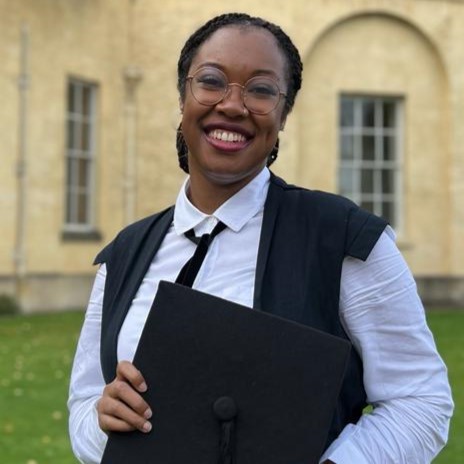The Many Souls of Alain
MacKenzie E Isaac (MSc Modelling for Global Health, 2022) writes
Double consciousness
 In 1903, W E B Du Bois coined a term that would capture the most central identity crisis of an entire ethnicity – perhaps for the remainder of human history. According to Du Bois, to be African American is to exist as a pendulum, swinging back and forth between the commitment to unapologetic Black identity and the pressures to conform to the dominant white society – not necessarily for its allure, but for its adjacence to privilege, comfort, belonging, survival. But is my survival as a Black person really survival at all if I must forfeit the ways that I openly celebrate and embody my culture? Is that even the sort of existence that I want? As I navigate starkly white spaces – the University of Oxford being no exception – will I have to slough off the heaviest, most essential aspects of my Blackness under the immense weight and pressure of double consciousness?
In 1903, W E B Du Bois coined a term that would capture the most central identity crisis of an entire ethnicity – perhaps for the remainder of human history. According to Du Bois, to be African American is to exist as a pendulum, swinging back and forth between the commitment to unapologetic Black identity and the pressures to conform to the dominant white society – not necessarily for its allure, but for its adjacence to privilege, comfort, belonging, survival. But is my survival as a Black person really survival at all if I must forfeit the ways that I openly celebrate and embody my culture? Is that even the sort of existence that I want? As I navigate starkly white spaces – the University of Oxford being no exception – will I have to slough off the heaviest, most essential aspects of my Blackness under the immense weight and pressure of double consciousness?
Thanks to Alain, I don’t bear the full burden of answering these questions.
Alain Locke formed the philosophical backbone of the Harlem Renaissance, an era of creative and intellectual flourishing that served as a beacon for African Americans amidst the throes of Jim Crow oppression. Before this age of Black enlightenment, though, Alain Locke was a Rhodes Scholar. Though it is suspected that a few members of the 1907 Rhodes Selection Committee knew that Locke was African American, he was systematically denied entry to several Oxford Colleges and student events. He was eventually granted admission to Hertford College, but his standing as a second-class citizen in England – as was the case his entire life in the States – was already cemented through words and actions as cold as an Oxford rainstorm in February.
Once again, Locke found himself standing in the agonizingly grey space between Black thought leadership and the Anglo-Saxon superiority complex woven into the very fabric of Oxford. And even in the face of his unambiguous Blackness, he had a complicated (but undeniable) relationship with privilege. He was, after all, an American Rhodes Scholar, and holding either identity in many parts of the world allowed him access to spaces from which countless people are routinely denied entry. Alain Locke was contradiction personified: opportunity encased in oppression, oppression encased in opportunity, on two separate continents. In this respect, Alain did not experience double consciousness as defined by his contemporary Du Bois. Each day he spent in Oxford, he waded through layers upon layers of consciousness. He contained multitudes; he was a man with many souls.
Such is the lot of African American Rhodes Scholars today, me included, more than a century later.
But if Alain was capable of honoring every aspect of his identity – incorporating each layer of his consciousness into scholarship that shaped the ongoing movement towards Black liberation – then I can certainly do the same. There are still times when I feel that my place in the Black Diaspora is underrepresented or misunderstood in Oxford. And there are still moments when I must sit uncomfortably with the internal tension caused by my dual feelings of marginalization and easiness in a multinational environment that admires my Americanness while dismissing my Blackness, despite the fact that I did not choose or ‘earn’ either of these identities for myself. But beyond the horizon of these snapshots of self-doubt lies an opportunity to transform the knowledge I’m gaining at Oxford into a body of meaningful work that is made in the image of my community.
While my scholarship and advocacy may not incite a generation-defining renaissance, I can assure you that it will be painted in the bright hues of Blackness, casting light on the liminal spaces where African Americans often find ourselves in a world that does not always make room for us. And with each brushstroke – with each story that I write, share, and receive throughout my life’s work – I will reaffirm my vision for a world that is more equipped to cherish and protect the bodies, minds, and many, many souls of African Americans and Black people across the entire Diaspora.
Alain would have it no other way.

